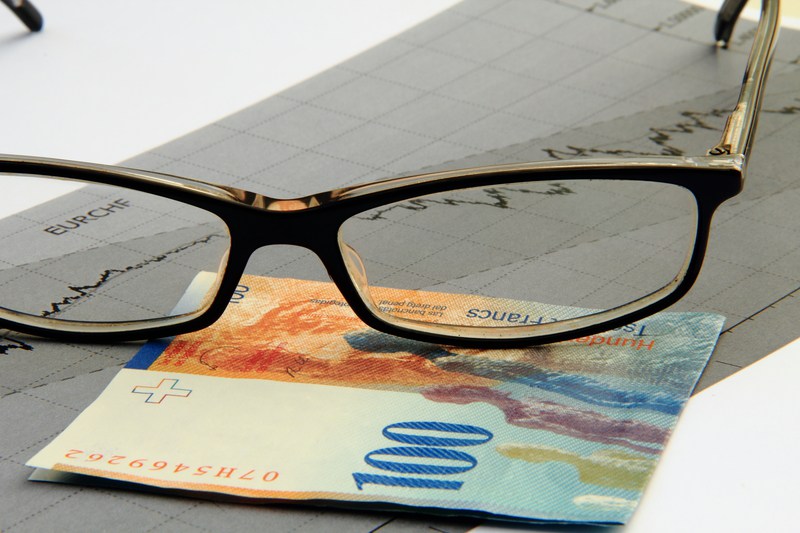Investec Switzerland. Swiss stocks, dislodged in 2015 as a haven from European volatility, have seen the status restored following Brexit — so much that some investors are balking at valuations. After trailing shares from Germany to France and Italy for most the past year, the Swiss Market Index is finding a new appeal in the fallout of the U.K. vote to leave the European Union. Investors buying up megacaps including Nestle SA, Novartis AG and Roche Holding AG have pushed the valuation of companies in the gauge to more than 16 times estimated profits, the highest since 2013 relative to the Euro Stoxx 50 Index. © Gregl87 | Dreamstime.com EFG Asset Management’s Urs Beck says haven equity investments may soon lose their appeal because of their high prices. After the referendum, he sold Nestle shares that now trade at almost 22 times their estimated earnings — 34 percent more than the SMI. Beck has since been buying shares of Swiss mid-cap Autoneum Holding AG every day, with a valuation multiple of about 12. “Roche and Novartis have been these havens given the uncertainty around the Brexit situation,” said the equities manager from Zurich. The drugmakers have risen more than 2.4 percent since the referendum. “Is it sustainable? I don’t think so.
Topics:
Investec considers the following as important: Brexit, Business & Economy, Editor's Choice, Swiss safe haven stocks
This could be interesting, too:
Investec writes Swiss inflation falls further in January
Investec writes Catching ski pass cheats – reactions, fines and worse
Investec writes Switzerland to allow personal bankruptcy
Investec writes Swiss supermarkets require customers to choose fruit and vegetable bags
Swiss stocks, dislodged in 2015 as a haven from European volatility, have seen the status restored following Brexit — so much that some investors are balking at valuations.
After trailing shares from Germany to France and Italy for most the past year, the Swiss Market Index is finding a new appeal in the fallout of the U.K. vote to leave the European Union. Investors buying up megacaps including Nestle SA, Novartis AG and Roche Holding AG have pushed the valuation of companies in the gauge to more than 16 times estimated profits, the highest since 2013 relative to the Euro Stoxx 50 Index.

© Gregl87 | Dreamstime.com
EFG Asset Management’s Urs Beck says haven equity investments may soon lose their appeal because of their high prices. After the referendum, he sold Nestle shares that now trade at almost 22 times their estimated earnings — 34 percent more than the SMI. Beck has since been buying shares of Swiss mid-cap Autoneum Holding AG every day, with a valuation multiple of about 12.
“Roche and Novartis have been these havens given the uncertainty around the Brexit situation,” said the equities manager from Zurich. The drugmakers have risen more than 2.4 percent since the referendum. “Is it sustainable? I don’t think so.”
The rally that began on June 28 was a redemption of sorts for the SMI, which climbed the second most among western-European markets since the U.K. vote, briefly erasing losses last week. Investors were reassured by the Swiss National Bank’s intervention to keep the franc under control, and were lured by the high dividends paid by the nation’s companies, according to Ion-Marc Valahu, co-founder and fund manager at Clairinvest.
“There’s a big flight to quality, people prefer to put their money in Switzerland and be secure,” Valahu said from Geneva. He kept his Swiss stocks through the initial selloff. “The SNB intervention helped a bit, and Swiss companies do pay a lot of dividends. That’s a refuge for people looking for some yield. Switzerland’s economy has been resilient even though the cap with the euro broke last year.”
Last year’s currency cap removal and subsequent franc surge stoked concern about a recession, but Switzerland defied expectations. Now economists forecast gross domestic product will expand 1.2 percent this year. While the currency has risen in the aftermath of the June 23 referendum, it remains far below the levels seen in January 2015.
After sliding 5.3 percent in the two days after the vote — less than half the losses in the Euro Stoxx 50 — the SMI had recovered by the end of last week. With consumer and health-care stocks making up 65 percent of the index, UBS Group AG said the market is among the best bets to investors looking to profit from the British referendum. At 3.6 percent, the SMI’s dividend yield is near a record high relative to the rate on the 10-year government bond, which is negative.
While the perception of safety has been helping Swiss stocks, traders are paying up for hedging in the next three months. The cost of bearish versus bullish options is about 18 percent greater than the average for the past year, and the number of puts outstanding relative to calls is near its highest level since 2008.
“Investors are desperately looking for yield, and companies like Roche, Nestle or Novartis still offer an attractive dividend yield,” said Andreas Nigg, head of equity and commodity strategy at Vontobel Asset Management in Zurich. “It will not be a smooth path, there will be volatility in the future.”
By Roxana Zega and Camilla Naschert (Bloomberg)
